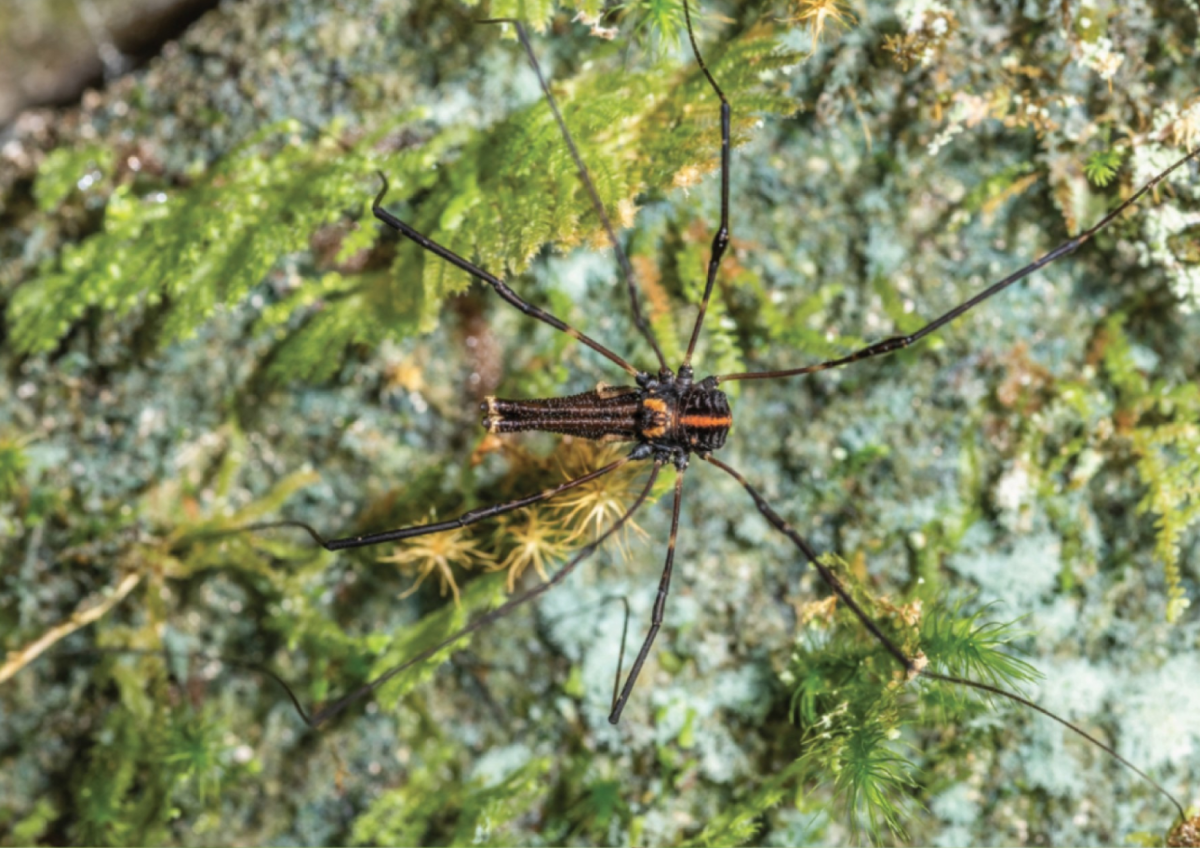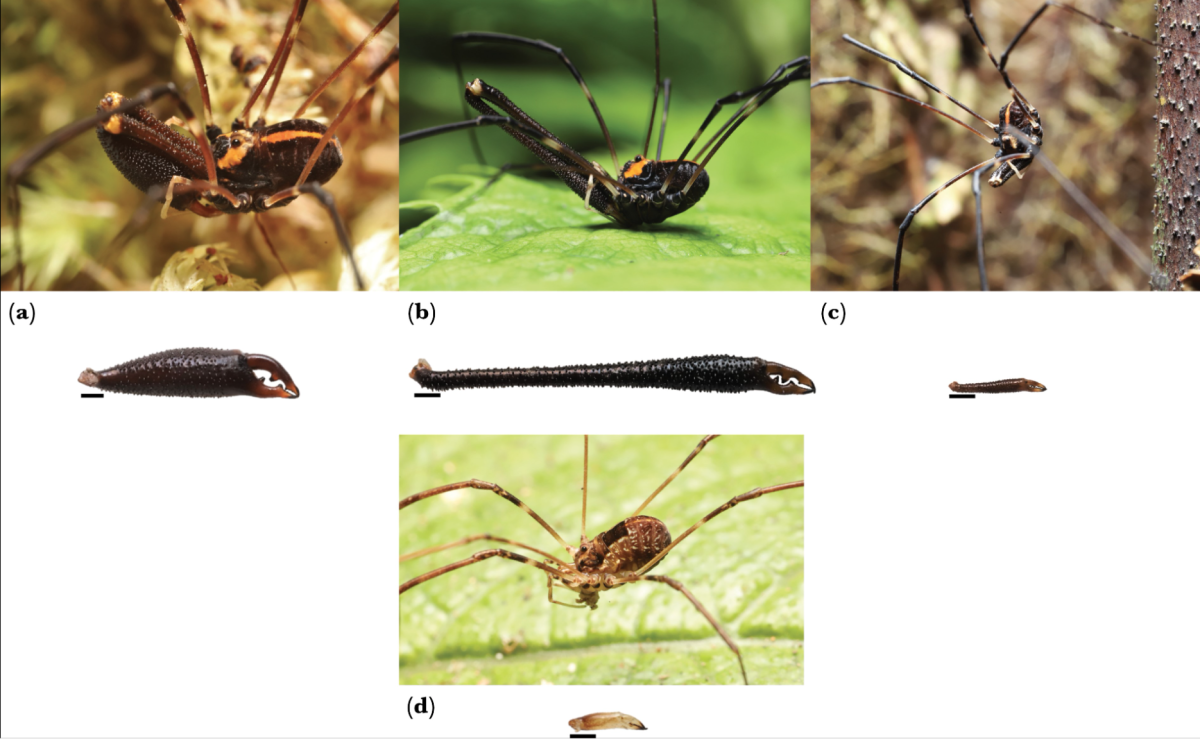The reason why a strange type of arachnid in New Zealand becomes one of three types of males—alpha, beta, and gamma—has been uncovered by scientists.
These Forsteropsalis pureora arachnids, also called harvestmen or daddy long legs, have been known to be "trimorphic" since 2020, but now, researchers at the University of Auckland in New Zealand have discovered why males end up as one of these types, according to a paper published in the journal Behavioral Ecology.
The arachnids are found in forests and caves across New Zealand. The three types of males are defined by their body size and shape and fall into a sexual hierarchy based on which type of male they are.

Newsweek reached out to the authors of the study via email for comment.
Alpha and beta males are large in stature and have big jaws, weighing up to half of their total body weight, that they use to compete with each other for access to the females. Alpha and beta males have differently shaped "weapons," with betas possessing longer and thinner jaws.
Gamma males, on the other hand, are up to seven times smaller than the other males, and rather than fight, surreptitiously mate with undefended females.
The researchers found that those males who had lost one of their legs during their development are 45 times more likely to become gamma males than the other types.
"Perhaps this is because they can't get enough food for their development because their hunting is impeded," one of the paper's co-authors, Erin Powell, previously a researcher at Waipapa Taumata Rau, University of Auckland, said in a statement.

"Or maybe there's no point in investing in big fighting weapons when they're already disadvantaged when it comes to fighting," she said. "So, the arachnids' resources may be invested in other things, such as testes size, sperm count, or aerobic poise, to ensure they make the most of the mating opportunities they get."
In the paper, the authors describe how the gamma male method of sneaking around to find undefended females is more advantageous to injured males than being defeated in combat between males.
This study may reveal that in species with different types of males in a sexual hierarchy, environmental factors may be more important than first thought.
"With their ridiculous towering weaponry and extreme male size variation, New Zealand harvestmen are both charming and puzzling," Powell said. "We still have much to learn about their fascinating biology and they have much to teach us about the evolution of mating systems across animal taxa."
Trimorphism is relatively rare in nature, having only been discovered in animals for the first time in 2009 in dung beetles. These new findings imply that trimorphism may be driven by environmentally-disadvantaged males finding novel ways to reproduce.
"Our study opens three fruitful lines for future investigation," the authors wrote in the paper. "(1) What is the proximate mechanism that relates leg loss during the juvenile stage and male morph at adulthood? (2) What are the consequences of leg loss for the reproductive success of the males? (3) How often do external ecological effects drive morph frequency in other taxa?"
Do you have a science story to share with Newsweek? Do you have a question about trimorphism? Let us know via science@newsweek.com.
Correction 07/20/2023 4:15 a.m. ET: A reference to spiders was removed from the headline because the arachnids in this study are not spiders.
Uncommon Knowledge
Newsweek is committed to challenging conventional wisdom and finding connections in the search for common ground.
Newsweek is committed to challenging conventional wisdom and finding connections in the search for common ground.
About the writer
Jess Thomson is a Newsweek Science Reporter based in London UK. Her focus is reporting on science, technology and healthcare. ... Read more
To read how Newsweek uses AI as a newsroom tool, Click here.








